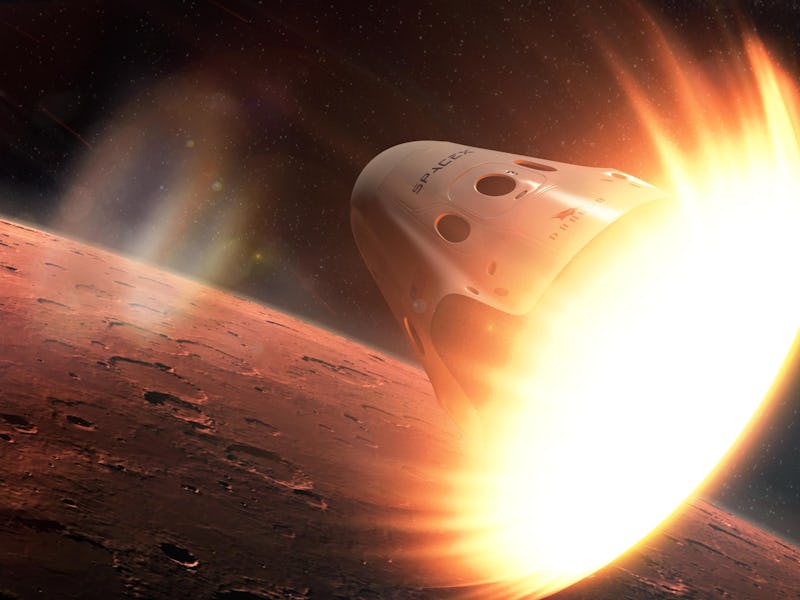Could SpaceX beat NASA to Mars? Elon Musk and his company want to put humans on the Red Planet by 2025 — about a decade before NASA thinks it will be able to get there. NASA’s official line has been to state clearly: “it’s not competition.”
The agency doubled down on those sentiments Monday. Thomas Zurbuchen, NASA’s new associate administrator for science, told reporters, “If Elon Musk brought the samples in the door right now I’d throw him a party out of my own money.”
In his first talk with the media, Zurbuchen emphasized his belief that a safe crewed landing on Mars for SpaceX would be “a huge success” and a validation that the private spaceflight industry was on its way to transforming space travel and exploration into something that could truly be tapped into by any group or nation — not just the rich ones.
It’s the same thing William Gerstenmaier, NASA’s associate administrator for human exploration and operations, told people back in September. Getting to Mars — whether it’s NASA, SpaceX, or another country — “advances us as a species.” Private industry, he said, was in a very good position to attempt risky operations that NASA, as a public entity, did not have the freedom to try. Every dollar NASA spends has to be accounted for and proven worthwhile. That’s why several years go into planning out every NASA mission — while Musk and his team can whip up something in just a few weeks time.
As partners, NASA has a tangible stake in SpaceX’s success as well. In return for providing consultation and access to deep space communication instruments for the company’s Red Dragon mission, NASA will be privy to the entry-descent-landing data acquired during that mission. Those numbers are invaluable for anyone attempting to land their own spacecraft onto the surface of Mars — a point only underscored by the failure of ESA’s Schiaparelli lander exploding as it hit ground on the Red Planet a few weeks ago.
